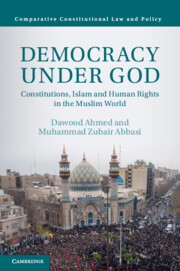
- Cited by 1
-
Cited byCrossref Citations
This Book has been cited by the following publications. This list is generated based on data provided by Crossref.
Zaland, Faiz Muhammad 2023. The Conflicting Synthesis of the Taliban’s Religious and Cultural Identity. The Review of Faith & International Affairs, Vol. 21, Issue. 3, p. 38.
- Publisher:
- Cambridge University Press
- Online publication date:
- February 2023
- Print publication year:
- 2023
- Online ISBN:
- 9781316662618


